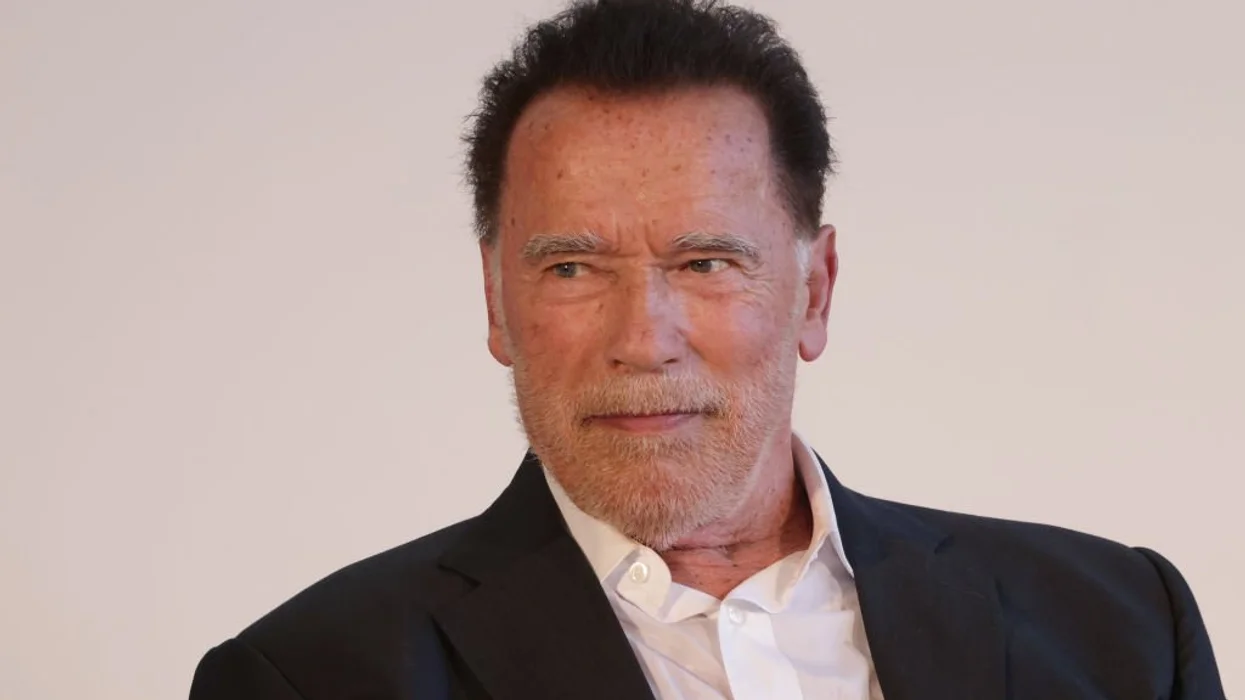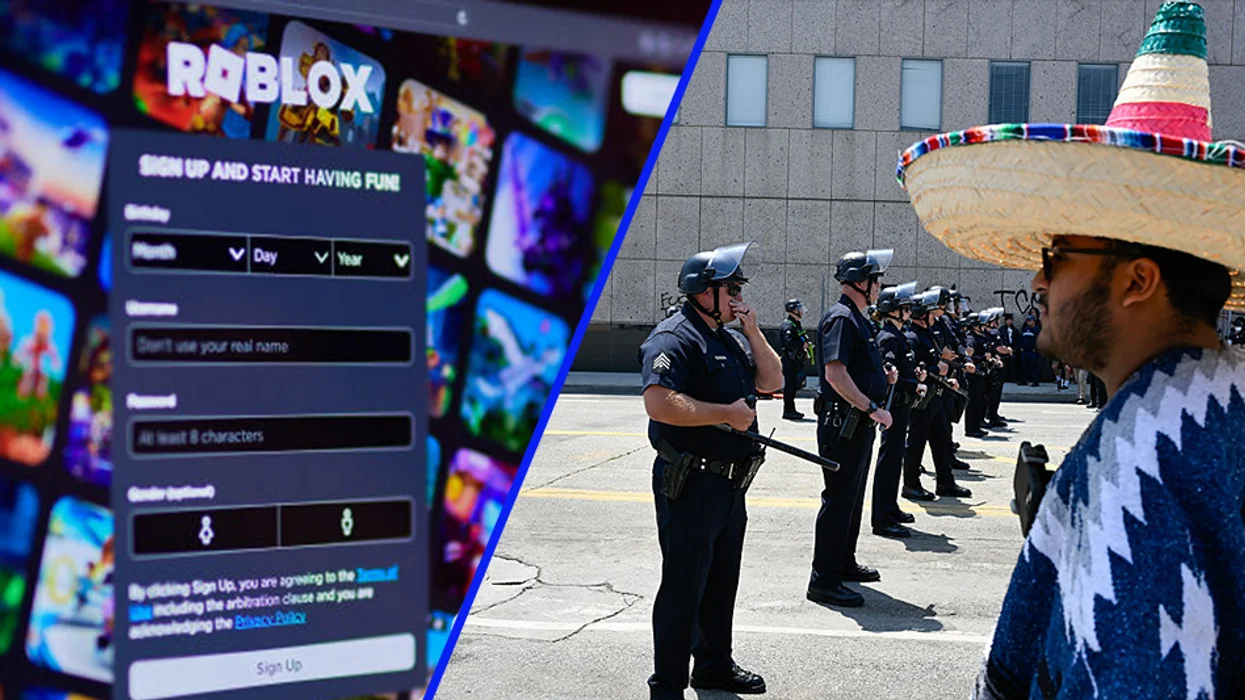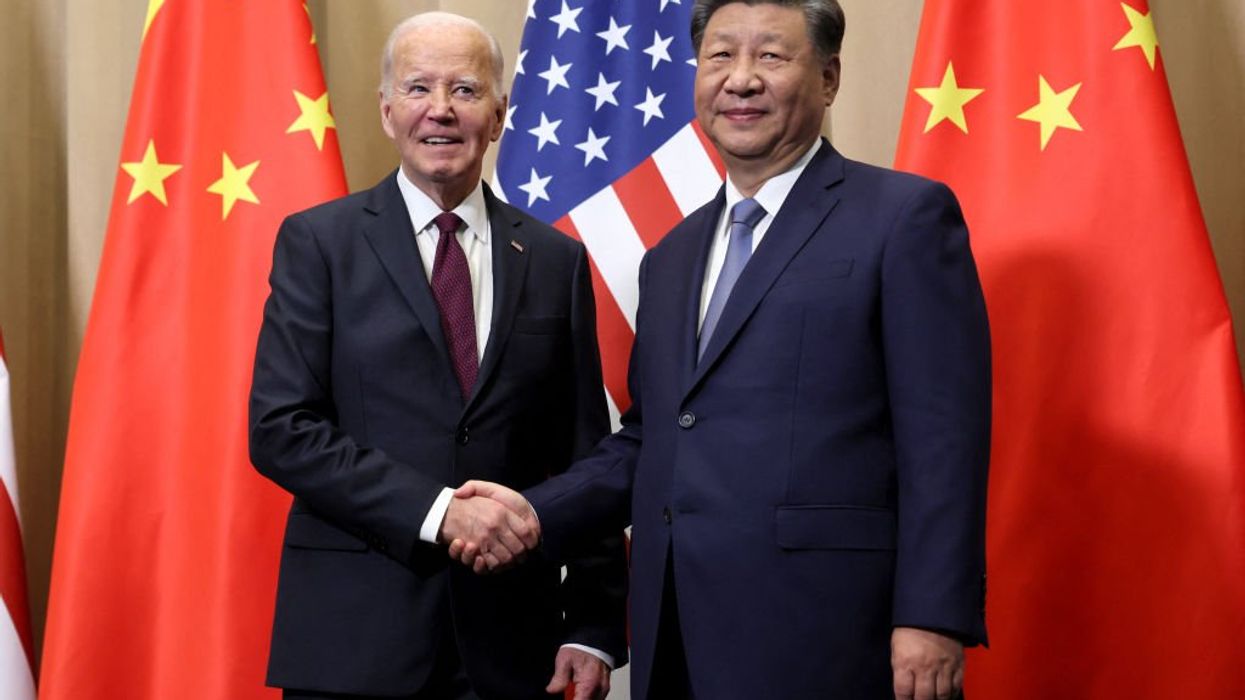SAN DIEGO (AP) -- The Mexican government has extradited suspected drug kingpins to the U.S. in the past, but none with a higher profile than Joaquin "El Chapo" Guzman, who was arrested Saturday in the Mexican port city of Mazatlan. The Sinaloa cartel leader faces charges in at least seven U.S. federal judicial districts - Brooklyn, N.Y.; Concord, N.H.; Chicago; Del Rio, Texas; El Paso, Texas; Miami; and San Diego.
 In this Saturday, Feb. 22, 2014 photo, Joaquin "El Chapo" Guzman is escorted to a helicopter in handcuffs by Mexican navy marines at a navy hanger in Mexico City, Mexico. Guzman, the head of Mexico's Sinaloa Cartel, was captured overnight in the beach resort town of Mazatlan. (AP Photo/Eduardo Verdugo)
In this Saturday, Feb. 22, 2014 photo, Joaquin "El Chapo" Guzman is escorted to a helicopter in handcuffs by Mexican navy marines at a navy hanger in Mexico City, Mexico. Guzman, the head of Mexico's Sinaloa Cartel, was captured overnight in the beach resort town of Mazatlan. (AP Photo/Eduardo Verdugo)
WHAT'S NEXT?
Mexico must decide if it wants to extradite Guzman or charge him at home. Some experts believe Mexico will want to avoid the headache of guarding him and any risk that he might escape, as he did in 2001 while serving a 20-year prison sentence on drug trafficking and murder charges. Others think Mexico will want to keep him.
"I can see it as a point of pride for Mexico to keep holding him until he exhausts his sentences," said Jan Ronis, a San Diego defense attorney who has handled high-profile extradition cases from Mexico and represented Guzman's daughter when she was arrested on an immigration charge in 2012. "It's a matter of sovereignty."
If Mexico agrees to extradite, the U.S. attorney general would decide which district gets to prosecute the coveted case. Guzman's attorneys can fight the request, creating long delays.
Mexico refuses to extradite anyone who would face the death penalty, which is illegal there.
WHO ELSE HAS BEEN EXTRADITED?
Benjamin Arellano Felix: In 2012 in San Diego, the leader of the Tijuana-based cartel that bore his name was sentenced to 25 years in a U.S. prison on drug charges. He spent nine years in Mexico fighting extradition to the U.S. His arrest, along with others, largely dismantled the cartel. Jesus Labra Aviles, a lieutenant, was arrested while watching his son's soccer game in Tijuana in 2000. He was extradited in 2008 and sentenced to 40 years.
Osiel Cardenas Guillen: Prosecution of the former head of the Matamoros-based Gulf cartel was largely done in secret after Mexico extradited him in 2007 to face charges in Houston. At a closed hearing in 2010, he was sentenced to 25 years in prison. Prosecutors dropped charges that could have resulted in a life sentence.
Juan Garcia Abrego: Cardenas Guillen's predecessor, who grew up in South Texas, was sent to the U.S. in 1996 and sentenced in Houston the following year to 11 life terms in prison on drug and other charges.
Vicente Zambada Niebla: The son of Sinaloa cartel strongman Ismael "El Mayo" Zambada was extradited in 2010, less than a year after his arrest in Mexico City. He awaits trial in Chicago.
WHERE WILL GUZMAN BE HELD IF HE IS EXTRADITED?
Guzman would be isolated no matter which jurisdiction gets the case, said Anthony Colombo Jr., a San Diego defense attorney whose previous clients include Arellano Felix.
Mexican drug lords are generally held in what the Bureau of Prisons calls Special Housing Units. Conditions vary little by city.
Arellano Felix lived in an 8-by-6 cell 24 hours a day, was allowed to shower three times a week and was permitted one 15-minute phone call a week. He was denied access to the prison library and family visitation privileges afforded to other detainees, according to a 2011 court filing by his attorney that called the conditions inhumane. His attorney visits were in a 5-by-5 room, where he was handcuffed and prohibited from taking notes. A judge ordered the shackles removed during attorney visits.
Prosecutors defend the way kingpins are treated, saying the conditions are for their own safety.
Zambada's attorneys have complained that their client isn't allowed outside. Prosecutors say that's to prevent any escape attempt from the roof of the 27-story jail and to guard against someone from a nearby skyscraper trying to assassinate him.

 In this Saturday, Feb. 22, 2014 photo, Joaquin "El Chapo" Guzman is escorted to a helicopter in handcuffs by Mexican navy marines at a navy hanger in Mexico City, Mexico. Guzman, the head of Mexico's Sinaloa Cartel, was captured overnight in the beach resort town of Mazatlan. (AP Photo/Eduardo Verdugo)
In this Saturday, Feb. 22, 2014 photo, Joaquin "El Chapo" Guzman is escorted to a helicopter in handcuffs by Mexican navy marines at a navy hanger in Mexico City, Mexico. Guzman, the head of Mexico's Sinaloa Cartel, was captured overnight in the beach resort town of Mazatlan. (AP Photo/Eduardo Verdugo)





